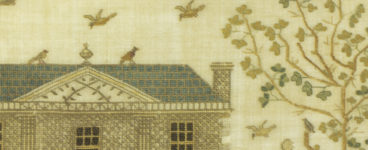‘Scotland and Icelands’ shared love of books is no accident. Both nations have rich oral traditions, with storytellers entertaining and teaching their audiences on long winter nights; and complimentary literary cultures, ranging from sagas of the exploits of medieval kings, through epic poetry, to our modern flourish of tales to suit every taste – including a mutual passion for crime fiction, perhaps a reflection of common cultural roots.’
Most countries have their own Christmas traditions. Here, Christopher Norris tells us about the Icelandic tradition of Jólabókaflóðið, a tradition book lovers from across the world should surely adopt at this time of year.
Christmas is a time for giving, all over the world, often featuring a mash-up of custom with origins in different countries. People in many cultures celebrate by exchanging presents with family and friends, and these gifts often include books. Scotland and Iceland share many national traits, including genetic heritage (60% of Icelandic women are of Scots’ descent) and a common love of literature and the sharing of books at Christmas. A Book Week Scotland poll conducted in November 2017 found that a whopping 69% of Scots said they would purchase books or book tokens to give to family and friends at Christmas.
In one sense, this is no surprise: books always make for great presents. Books are cheap, portable and easy to wrap; they come ready to use (no batteries needed); they come in all shapes, sizes, genres and flavours, to suit everyone’s interests and enthusiasms; they can teach, entertain and expand our imaginations; they are robust, stack easily, and have no breakable moving parts; you can never have too many of them and they can last a lifetime. Books have features that can knock more expensive, faddish and exotic gifts into a cocked hat.
There are plenty of books to choose from, not least by Scottish authors or about topics of interest to Scots. In 2017, the International Publishers Association released a report showing that the UK published more books per head than anywhere else in the world (2,710 titles per million people, in 2015). Iceland was not far behind, with 2,628 titles per million, but the Nordic nation has the most well read citizens anywhere on the planet: half the population reads more than eight books per year. Amazingly, one in ten people in Iceland writes a published book, making sense of the national proverb ‘everyone has a book in their stomach’.
Scotland and Icelands’ shared love of books is no accident. Both nations have rich oral traditions, with storytellers entertaining and teaching their audiences on long winter nights; and complementary literary cultures, ranging from sagas of the exploits of medieval kings, through epic poetry, to our modern flourish of tales to suit every taste – including a mutual passion for crime fiction, perhaps a reflection of common cultural roots. Scottish giants of the genre, such as Ian Rankin and Val McDermid, are matched by the talents of Yrsa Sigurðardóttir and Ragnar Jónasson, both best-selling Icelandic authors with many titles translated into English. As a result of this common cultural heritage, UNESCO have designated both Edinburgh and Reykjavík as ‘Cities of Literature’.
In a November 2017 press release from Literature Alliance Scotland, Kristín Viðarsdóttir, Head of International Cooperation at Reykjavík City of Literature, said: ‘Our literatures have crossed paths through the ages as have our people and our languages. We can trace our connection to the very settlement of Iceland, as many of our ancestors came here from the British Isles.’
For over 70 years, Icelanders have celebrated their passion for books with a unique tradition called Jólabókaflóðið – Christmas book flood, in English, and pronounced Jola-boka-flod (with the ‘J’ sounding like the ‘Y’ in ‘yoghurt). The word Jól is Old Norse for ‘Yule’, which is same as the Scots language word for the festive season.
The Jólabókaflóðið tradition began during World War II once Iceland had gained its independence from Denmark in 1944. Paper was one of the few commodities not rationed during the war, so Icelanders shared their love of books even more as other types of gifts were in short supply. This increase in giving books as presents reinforced Iceland’s culture as a nation of bookaholics.
Every year since, the Icelandic book trade has published a printed catalogue – called Bókatíðindi (‘Book Bulletin’, in English) – that is sent to every household in the country in mid-November during the Reykjavik Book Fair. People use the catalogue to order books to give friends and family for Christmas.
During the festive season, gifts are opened on 24 December and, by tradition, everyone reads the books they have been given straight away, often while drinking hot chocolate or alcohol-free Christmas ale called jólabland.
Whilst it might be a stretch to persuade everyone in Scotland to forgo the pub or Midnight Mass on Christmas Eve – especially in a land where a post-Reformation ban on celebrating the festive season led to Christmas Day only being declared a public holiday in 1958 – Jólabókaflóðið reminds us that the long hours of seasonal ennui when ‘there’s nothing on the telly’, we’re fed up of being cooped up with our extended families, and we’re bloated from all the endless turkey dinners, give us the perfect opportunity to find the time and place to lose ourselves in a book, especially one we have just received as a gift. We might even enjoy the experience so much that we would make a resolution to carry on reading for pleasure well into the New Year, once the Hogmanay parties, processions and renditions of ‘Auld Lang Syne’ have died away.
In the old days of Celtic Druids, the Yule season – with its remnant tradition of burning logs to conquer midwinter darkness – lasted 12 days, the period during which they believed the sun stood still, a tradition assimilated by later Viking settlers. The twelve days of Christmas and Twelfth Night remain with us from these origins, as well as the large ceremonial fires lit in northern harbour towns in Scotland to mark the turning of the year.
In Iceland, the modern festive Jól season lasts the full 12 days, personalised by Christmas folklore tales of the mischievous ‘Yule Lads’ and the ‘Christmas Cat’ – captured in a famous poem by Jóhannes úr Kötlum, later set to music by the pop icon, Björk (YouTube video).
Wouldn’t it be great to allow ourselves the chance to read for pleasure over the whole Yule season, from Christmas Eve to Epiphany and beyond? As for me, my festive wish list for Jolabokaflod from the Books from Scotland catalogue (fiction | non-fiction) will include Lethal White, the latest Robert Galbraith ‘Strike’ novel; Alexander McCall Smith’s personal curation of Scottish poems, A Gathering; and a new illustrated biography of the Scottish-born scientist, inventor and engineer, Alexander Graham Bell.
As another famous Scot – Kenneth Grahame – wrote for his character, Toad, to say in The Wind in the Willows, reading books allow you to be ‘Here today, up and off to somewhere else tomorrow! Travel, change, interest, excitement! The whole world before you, and a horizon that’s always changing!’
Let’s make Jólabókaflóðið part of our festive cultural tradition here in Scotland. Merry Christmas and ‘happy reading’, wherever you travel in your books this Yuletide.
Christopher Norris is the Founder and Curator of Jolabokaflod CIC, a not-for-profit enterprise to introduce the Icelandic tradition of Jolabokaflod to the UK and beyond: @Jolabokaflod | #Jolabokaflod
With thanks to AUTHOR Interiors for the photograph, taken from The Art of Coorie: How to Live Happy the Scottish Way by Gabriella Bennett
ALSO IN THIS ISSUE

 Embroidered Stories
Embroidered Stories
‘I feel like this genealogical research gives a second life to people who lived uncelebrated lives.’

 Keep Calm and Coorie In!
Keep Calm and Coorie In!
‘We live in a world where we are always pushed for time, so it’s lovely to set aside time to do some …












